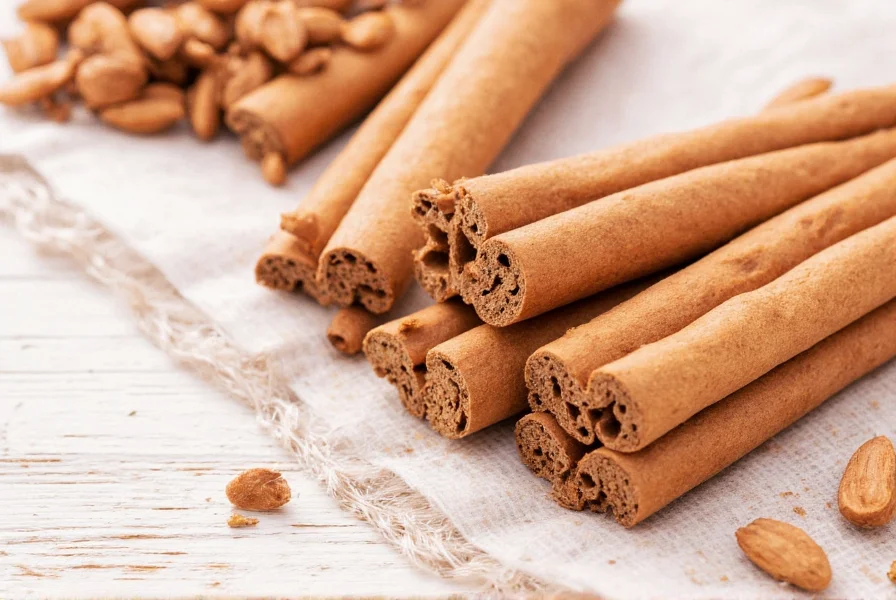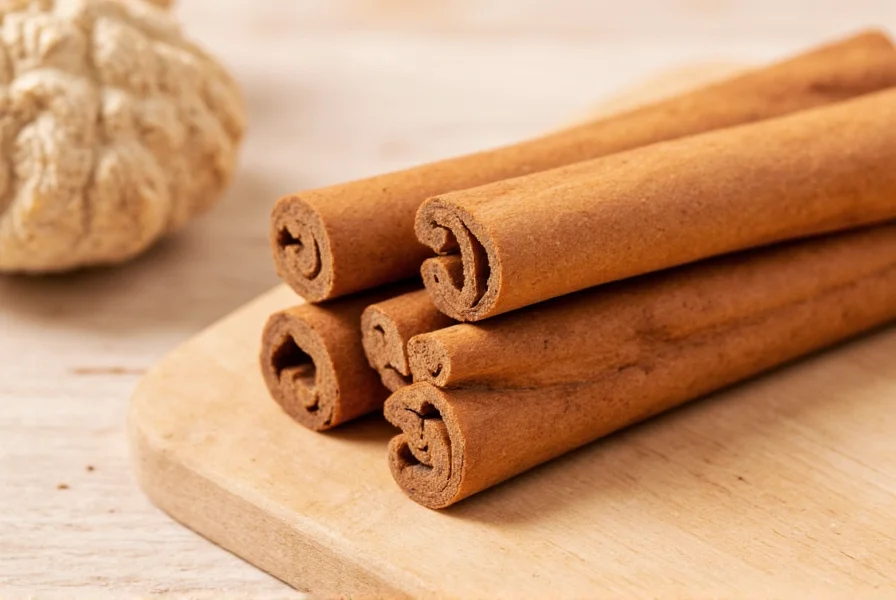Yes, pure cinnamon is naturally gluten-free. All unadulterated cinnamon varieties—including Ceylon ("true" cinnamon) and Cassia—contain no gluten proteins. However, cross-contamination during processing or added ingredients in flavored cinnamon products may introduce gluten.
For individuals managing celiac disease or gluten sensitivity, understanding cinnamon's gluten status is crucial for maintaining a safe diet. This comprehensive guide examines cinnamon's natural composition, potential contamination risks, and practical strategies for selecting truly gluten-free products.
Why Pure Cinnamon Is Inherently Gluten-Free
Cinnamon comes from the inner bark of Cinnamomum trees. As a plant-based spice with no grain components, it naturally lacks gluten—the protein composite found in wheat, barley, and rye. Both major cinnamon types share this gluten-free property:
| Cinnamon Type | Origin | Gluten Status |
|---|---|---|
| Cassia (Chinese) | China, Indonesia, Vietnam | Naturally gluten-free |
| Ceylon ("True") | Sri Lanka, Madagascar | Naturally gluten-free |
The U.S. Food and Drug Administration requires gluten-free labeling for products containing less than 20 parts per million (ppm) of gluten—the threshold considered safe for most people with celiac disease. Pure, single-ingredient cinnamon typically tests well below this limit when properly processed.
When Cinnamon Might Contain Gluten
While the spice itself is gluten-free, these scenarios introduce potential contamination:
Cross-Contamination in Processing Facilities
Many spice manufacturers process multiple products in shared facilities. If wheat-containing products are manufactured on the same equipment, microscopic gluten particles could transfer to cinnamon. This risk is higher with:
- Store-brand bulk spices
- Economically priced generic brands
- Products from facilities without dedicated gluten-free protocols
Flavored or Blended Cinnamon Products
Certain cinnamon varieties pose gluten risks:
- Cinnamon sugar blends—may contain wheat-derived anti-caking agents
- Pre-mixed baking spices—often combined with flour-containing ingredients
- Flavored extracts—some use grain alcohol distilled from wheat

How to Ensure Gluten-Free Cinnamon
Follow these evidence-based selection methods:
Look for Certified Gluten-Free Labels
The most reliable indicator is third-party certification from organizations like:
- Gluten-Free Certification Organization (GFCO)
- NSF International
- Celiac Support Association
These certifications verify through regular testing that products contain less than 10 ppm gluten—stricter than FDA requirements.
Read Ingredient Lists Carefully
Authentic gluten-free cinnamon should list only:
- "Cinnamon"
- "Ceylon cinnamon"
- "Cassia cinnamon"
Avoid products listing:
- "Spice blend"
- "Natural flavors" (without specification)
- "Anti-caking agents"
Choose Reputable Gluten-Free Brands
Brands consistently testing below 5 ppm gluten include:
- Penzeys Spices (dedicated gluten-free facility)
- Simply Organic (GFCO certified)
- Frontier Co-op (third-party tested)
Practical Usage Tips for Gluten-Sensitive Consumers
Maximize safety with these evidence-based practices:
Storage Separation
Store gluten-free cinnamon in airtight containers away from wheat-containing products to prevent airborne contamination in your kitchen.
Measurement Protocol
Use dedicated measuring spoons for gluten-free spices to avoid cross-contact during cooking—especially important when preparing meals for someone with celiac disease.
Homemade Cinnamon Sugar
Create your own blend using certified gluten-free cinnamon and sugar in a 1:4 ratio. This eliminates risks from commercial blends that may contain wheat starch.
Scientific Verification of Cinnamon's Gluten Status
Multiple studies confirm cinnamon's natural gluten-free composition. A 2022 Journal of Agricultural and Food Chemistry analysis tested 37 commercial cinnamon samples, with 35 showing undetectable gluten levels (<2 ppm). The two exceptions were flavored products containing added ingredients.
Researchers at the University of Chicago Celiac Disease Center note: "Pure spices like cinnamon present minimal risk when sourced from dedicated facilities. The greater concern lies with spice blends and processed cinnamon products where gluten-containing additives may be present."
Conclusion
Pure cinnamon remains a safe, naturally gluten-free spice for those avoiding gluten. By selecting certified products, reading labels carefully, and understanding potential contamination points, individuals with celiac disease or gluten sensitivity can confidently incorporate this versatile spice into their diets. When in doubt, contact manufacturers directly to verify their gluten testing protocols before purchase.
Is McCormick cinnamon gluten free?
McCormick's single-ingredient ground cinnamon is naturally gluten-free and processed in facilities with gluten controls. However, they don't test to gluten-free certification standards (less than 20 ppm). For strict gluten avoidance, choose certified gluten-free brands instead.
Can people with celiac disease eat cinnamon?
Yes, people with celiac disease can safely consume pure, certified gluten-free cinnamon. The risk comes from cross-contamination in processing or added ingredients in flavored products. Always verify certification when managing celiac disease.
Does cinnamon powder have gluten?
Pure cinnamon powder contains no gluten as it's derived from tree bark. However, some commercial cinnamon powders may contain gluten due to cross-contamination during processing or added anti-caking agents. Certified gluten-free cinnamon powder is the safest choice.
How can I tell if my cinnamon is contaminated with gluten?
You cannot visually detect gluten contamination. The only reliable methods are purchasing certified gluten-free products or using at-home gluten test kits designed for food. If you experience symptoms after consuming cinnamon, consult your healthcare provider about possible contamination.
Is organic cinnamon gluten free?
Organic certification doesn't guarantee gluten-free status. While organic cinnamon is made from pure cinnamon without synthetic additives, it may still experience cross-contamination in shared facilities. Look for dual certification (organic AND gluten-free) for maximum safety.











 浙公网安备
33010002000092号
浙公网安备
33010002000092号 浙B2-20120091-4
浙B2-20120091-4